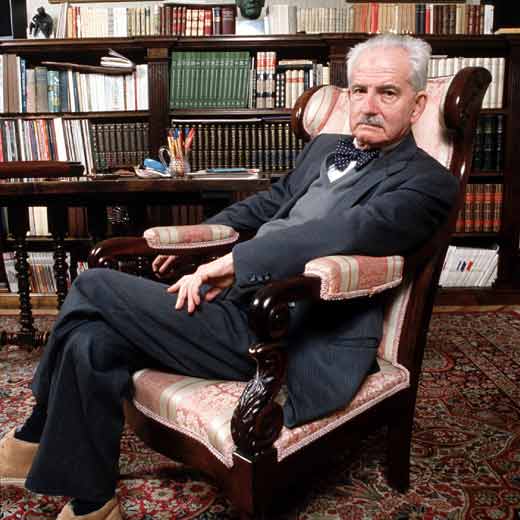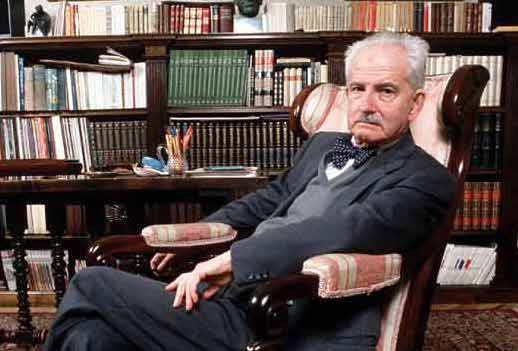It hasn’t been all that long that Basque studies started delving into Basque prehistory and the myths and legends that shaped the Basque world view. José Miguel de Barandiaran Ayerbe was a pioneer in these efforts, but he didn’t work alone and his student, Julio Caro Baroja – the nephew of one of the greatest writers of the early 1900s – followed in his footsteps and beyond, scouring the Basque countryside for any tidbit he could find, expanding our own view of what it means to be Basque.

- Caro Baroja was born in Madrid on November 13, 1914, to Rafael Caro Raggio and Carmen Baroja. Rafael was the founder of the publishing house Editorial Caro Raggio while Carmen was an accomplished ethnographer and writer. His uncles were Pio and Ricardo. Though born in Madrid, Julio spent much of his childhood in the Nafarroan town of Bera with his uncle Pio. He published his first essay, on the nature and importance of the house in the town of Lesaka, when he was 15.
- Even before starting his doctorate, he was working with Basque ethnographers José Miguel Barandiarán and Telesforo de Aranzadi. He got his doctorate in 1940 in ancient history and published his first book shortly after in 1941. He obtained a position with the Museo del Pueblo Español and spent time in the United State and the United Kingdom studying both anthropology and ethnology.
- In his work, Caro Baroja chased every aspect of life, of the people, to derive the most complete picture of humans and their cultural world. He examined every scrap of information he could find, from “the testimony of a witch, the letter of a conqueror, the anecdote told by the old Basque sea dog, everything is an expression of a humanity that tries to live its finite and fragile little life in a complicated and difficult world.” In his work, he railed against speculation, striving to document and base his interpretations and arguments on evidence.
- He had a particular interest in witchcraft, which grew from a childhood where the people around him believed in the supernatural. This eventually led to his book The World of the Witches, which looks beyond the Basque Country to the history of witchcraft in Europe more broadly, though with an emphasis on Basque witches.
- Caro Baroja published some 30 books and many more monographs, articles, and essays, many dealing with the Basque Country. A collection of his essays, translated into English and downloadable for free, was published by the Center for Basque Studies Press. His life’s work, Los Vascos (The Basques), also downloadable, touches on all aspects of Basque culture, from the nature of Basque towns and their economies to the social life of the Basques.
- In addition to his interests in the Basques, Caro Baroja also researched and published on minority communities, including the crypto-Jews and the Moors of Granada. In fact, when he was inducted into the Real Academia de la Historia, his speech dealt with the topic of the crypto-Jews.
- Caro Baroja died on August 18, 1995, in Bera. By that time, he had received numerous accolades for his work, including being named to multiple academies such as Euskaltzaindia (the Royal Academy of the Basque Language). He received the Prince of Asturias Prize for Social Sciences and a square in Donostia is named for him.
Primary sources: Izaga Garmendia, Carmen [et al.]. Caro Baroja, Julio. Auñamendi Encyclopedia. Available at: https://aunamendi.eusko-ikaskuntza.eus/en/caro-baroja-julio/ar-26703/; Julio Caro Baroja, Wikipedia (English); Julio Caro Baroja, Wikipedia (Spanish). The blog Laicacota collected a number of remembrances of Caro Baroja after his death in 1995.
Discover more from Buber's Basque Page
Subscribe to get the latest posts sent to your email.



Very interesting story and perhaps there are many more. Buber’s Basque is a very important contrbution to keep the basque flame alive. Thank you.
Mil esker Guillermo. I appreciate the kind words.